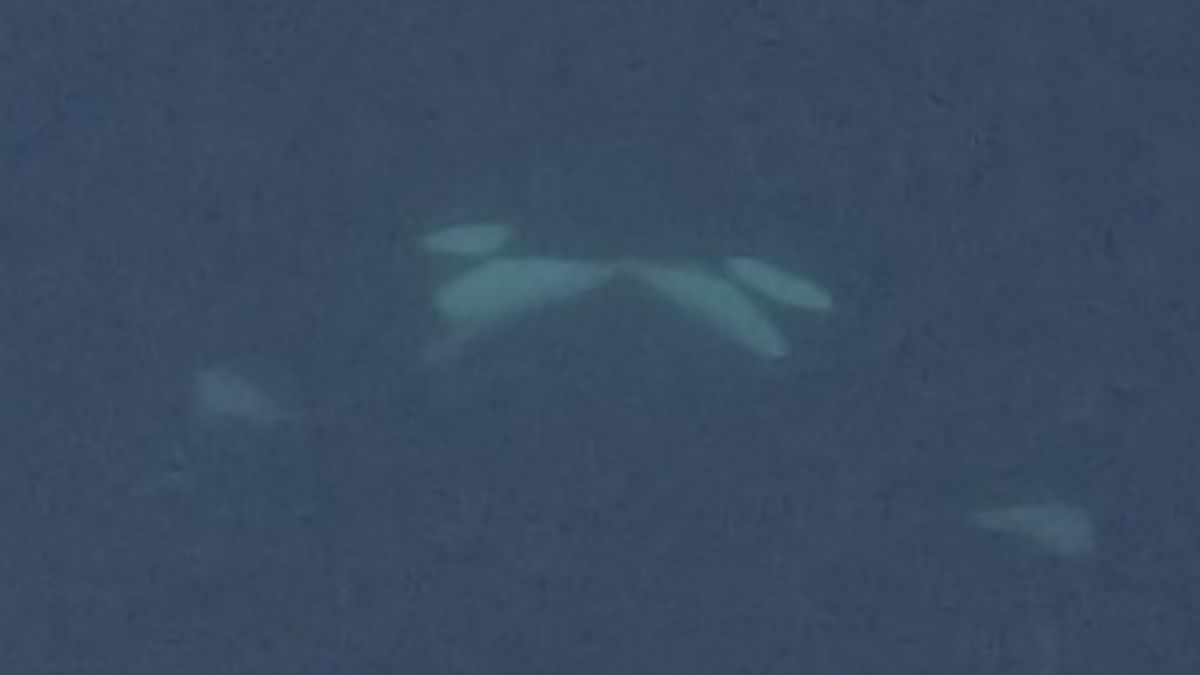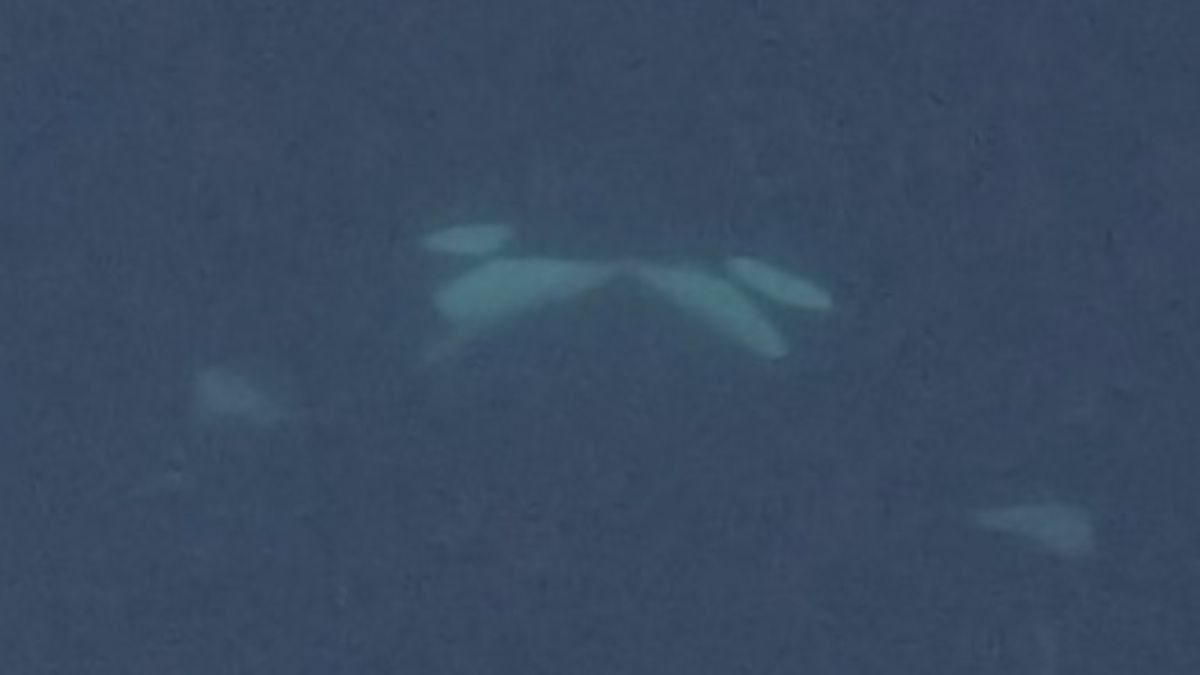For the first time ever, a pair of orcas have been spotted making out in the wild.
The amorous pair was observed nibbling each other’s tongues during a snorkeling expedition in the Kvænangen fjords in northern Norway, around 68 miles (109 kilometers) northeast of Tromsø, according to a new study published June 11 in the journal Oceans.
This tongue-nibbling behavior has only previously been seen on a handful of occasions in captivity.
The action, described as resembling “kissing” by the citizen scientists who observed it, may play a role in social bonding, the researchers suggest.
The citizen scientists spotted and recorded this unique behavior during a whale-watching snorkeling expedition in October 2024. The interaction lasted just under two minutes and involved three bouts of gentle mouth-to-mouth contact between the two orcas (Orcinus orca). Afterward, the pair swam their separate ways.
Tongue-nibbling was first seen in captive orcas in 1978 and was described again in 2019 at Loro Parque, a zoo in Tenerife, Spain that houses three captive orcas.
The researchers spoke to a range of divers and other orca researchers regarding the behavior in the wild, but only a handful had ever spotted it. Trainers at Loro Parque noted that four individuals at the facility had been seen tongue-nibbling, but the orcas had not performed the behavior for several years.

“Tongue-nibbling is exceptionally rare,” study co-author Javier Almunia, a marine mammal researcher and director of Loro Parque Fundación, told Live Science via email. “Orca caretakers at several facilities are aware of the behaviour, but its prevalence is extremely low — it may appear and then not be observed again for several years.”
Mouth contact between animals is seen in a vast number of species and can represent a variety of different social cues. Many social animals use mouth contact to reinforce bonds, such as primates, who engage in kissing or lip-touching as a sign of trust and friendship. In dogs and wolves, mouth licking, especially from younger or subordinate individuals, can represent a sign of respect or submission to a higher-ranking individual.
The researchers suggest that tongue-nibbling in orcas may be a form of social bonding, similar to that seen in belugas (Delphinapterus leucas), a type of toothed whale.
“Tongue-nibbling itself has not been recorded in other species, but comparable mouth-related social interactions have been observed in belugas (e.g., mouth-to-mouth contact). This could suggest that, given cetacean anatomy — particularly the adaptation of limbs to the marine environment — oral contact may serve as a more versatile means of social communication than in terrestrial mammals,” Almunia said.

“This behaviour appears to serve affiliative purposes and may play a role in reinforcing social bonds or resolving conflicts, akin to grooming or reconciliation behaviours in other highly social species,” he added.
However, we cannot be certain of what exactly drove the orcas to exhibit this behavior without further research.
“We can only speculate on the function and nobody can know for sure without data relating it to known social structures in the wild (in captivity the ‘social structure’ is completely artificial and therefore largely irrelevant for understanding social function in evolutionary terms),” said Luke Rendall, a marine mammal researcher at the University of St. Andrews in Scotland. “It may be affiliative, it might be a form of begging, that is trying to stimulate food transfers, it might even be a form of grooming, somehow having a cleaning function,” Rendall told Live Science.
The researchers suggest in the paper that the observed tongue-nibbling could be a “trend” play behavior in the orcas, similar to positioning dead fish on their heads as hats, which was seen in one orca population.
This observation of tongue-nibbling in the wild suggests that the behavior is not exclusive to captive animals and instead is found in a range of genetically distinct populations.
“Observing the same behaviour in wild orcas confirms that this is a natural behaviour retained in orcas under human care. This continuity supports the idea that behavioural studies in zoological settings provide important insights into the ethology of wild populations,” Almunia said.
However, not everyone is convinced by the argument that captive animals can give insights into natural behavior and suggest far more research is needed to understand this tongue-nibbling.
“There’s no quantification here — no attempt to calculate actual rates by doing the hard work of pulling together numbers such as the number of hours observed in the wild per observation of this behaviour, and the same for captivity,” Rendall said.
“Even if the behaviour itself is fascinating, and I think it is, we are limited on conclusions because it’s just one observation, but it is telling that in their summing up these authors take great pains to try and explain how this observation justifies the activities of [orca captivity and swim-with-cetaceans programmes]. It does not, in my view.”

